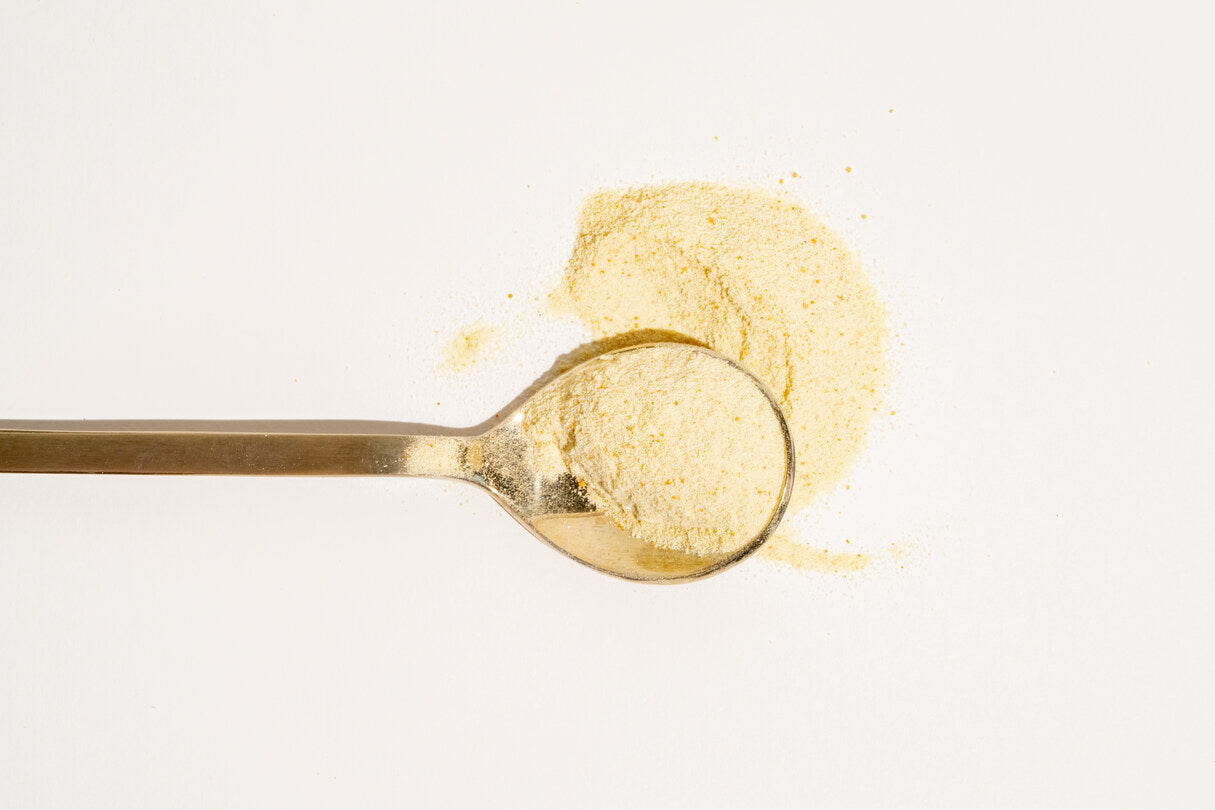A healthy gut is like a well-maintained engine — barely noticeable. Similarly, when one thing goes wrong, it seems like everything is broken. But what makes a healthy gut? Part of the answer includes the gut microbiota, a collection of millions of viruses, fungi, bacteria, and yeast that all function to help keep things running smoothly. In this article, we focus on one specific species of beneficial bacteria: Bacillus coagulans (or just B. coagulans). But what is Bacillus coagulans?
This probiotic has many health benefits — including reducing triglycerides and visceral fat, as well as improving gut health and digestion.
Bacillus coagulans is one of the main probiotic ingredients in Eden’s, a scientifically-vetted synbiotic supplement. Uniquely, Eden’s contains five prebiotics, four probiotics (including B. coagulans), and five polyphenols that are combined into one formulation targeting enhanced gut health and all of the health benefits that flow from that.
[[product]]
What are probiotics?
Probiotics are live microorganisms that confer a health benefit to the host when given in adequate amounts. Found in fermented foods such as yogurt and kimchi, probiotics consist of many species of bacteria and yeast. In addition, probiotics can be consumed as a supplement. Importantly, the amount of a particular strain that will confer a benefit depends on the individual’s microbiome.
Studies have shown that ingesting probiotics can beneficially alter the gut microbiome and that they can prevent and treat several diseases and conditions — including eczema, respiratory infections, inflammatory bowel disease, and more. Probiotics work through several mechanisms, including:
- Producing substances, such as vitamins and short chain fatty acids, which are beneficial to health;
- Restoring the balance of a microbiome damaged due to antibiotic treatments or infections;
- Influencing the immune response.
Not all probiotic species are created equal, so when looking to add a probiotic to your daily regimen, it’s important to choose species scientifically proven to provide health benefits. Since probiotics have GRAS (Generally Recognized As Safe) status from the FDA, anyone and everyone can make them. Therefore, before you select one to take, make sure that its claims are grounded in science; and if you’re uncertain, talk with your medical provider about how and which type of probiotic supplement or selection of probiotic-rich foods could most benefit your unique health profile.
[[mailing_list]]
What is Bacillus coagulans?
B. coagulans is a rod-shaped beneficial bacteria clinically proven to enhance healthy metabolic activity, in part by increasing the populations of other beneficial probiotic species while reducing the populations of harmful bacteria in your gut.
One of the main reasons B. coagulans is unique is because it can tolerate extreme environments. Traditional probiotics have extremely poor survival rates, on the order of 1-15%. However, the ability of certain probiotics to produce spores significantly increases probiotic survival. Bacillus coagulans can create spores that can survive years with limited nutrients, but this particular bacteria can also quickly germinate and thrive if given favorable conditions. Fun fact: B. coagulans spores are so tolerant to extreme environments that they can survive boiling and baking, making them perfectly suited to add to pastas, cereals, chocolate, and ice cream.
Bacillus coagulans benefits
As a species, B. coagulans confers many health benefits, including:
- Producing lactic acid. Lactic acid is a potent antimicrobial substance produced by numerous beneficial bacteria. Although some traditional probiotics produce lactic acid, the lactic acid produced by B. coagulans has a greater positive effect on immune stimulation and gut defense, possibly because this species is highly efficient at producing relatively pure lactic acid.
- Helping digest lactose. Lactose is a sugar, found in milk and milk products, that certain people have problems digesting. Lactose intolerance manifests in various gastrointestinal issues such as bloating, gas, and bowel irregularities. Certain B. coagulans strains produce an enzyme called β-galactosidase, which helps break down lactose, potentially providing relief to those suffering from lactose intolerance.
- Preventing symptoms associated with IBS. Irritable bowel syndrome (IBS) affects the gastrointestinal tract and is associated with symptoms such as abdominal pain, bloating, and irregular bowel movements. A pair of clinical trials evaluating the efficacy of different B. coagulans strains showed decreased IBS symptoms without adversely affecting the gastrointestinal tract or inflammatory markers, indicating that B. coagulans supplementation is effective and well-tolerated.
- Lowering triglycerides. Triglycerides are a type of fat that is found in blood, resulting primarily from net calorie surplus, which occurs when you take in more calories than you burn. Over time, elevated triglycerides can cause hardening of blood vessels, which increases risk for stroke and heart attack. A recent double-blind trial demonstrated that people who took a probiotic blend including B. coagulans SC208 (the specific strain included in Eden’s) had significantly lower triglyceride levels starting 6 weeks after supplementation compared to people who took a placebo.
- Reducing visceral fat. Visceral fat is fat that surrounds organs. Although some levels of visceral fat are normal, high amounts of visceral fat are associated with diabetes, stroke, and heart attack. One study showed that supplementation with a prebiotic and probiotic regimen including B. coagulans SC208 for 90 days reduced visceral fat by 35%.
Exploring the Potential Benefits of Bacillus Coagulans MTCC 5856 Probiotic Supplement
Bacillus coagulans MTCC 5856, a distinct probiotic strain marketed as lactobacillus sporogenes, is gaining attention for its unique probiotic characteristics and potential health benefits. Studies have evaluated the efficacy and safety of this novel probiotic, particularly in the management of gut health.
Research suggests that supplementation with MTCC 5856 may have beneficial effects on gut microbiota and digestive health, making it a promising therapeutic option for conditions like diarrhea-predominant irritable bowel syndrome and small intestinal bacterial overgrowth. Bacillus coagulans is possibly safe when taken as a probiotic supplement, with trials indicating its efficacy in reducing the severity of acute rotavirus diarrhea and preventing necrotizing enterocolitis in low-birth-weight infants.
Additionally, this probiotic strain forms spores, ensuring stability and efficacy during storage and digestion. Despite its novel antimicrobial properties, it is essential to conduct further research to fully understand the therapeutic effects and safety profile of MTCC 5856 supplementation. However, initial studies and systematic reviews support the potential benefits of this probiotic strain in improving the health of the host and warrant further exploration in clinical settings.
Combining probiotics (such as Bacillus coagulans) with prebiotics: A synbiotic key to supporting gut health
In order for probiotics to thrive, they need an environment that makes them happy. Prebiotics are essentially food for probiotics, making them a key factor in creating that beneficial environment in your gut microbiome. Certain types of fibers are critical prebiotics that help support the gut microbiota. To be a prebiotic, a fiber must be:
- Indigestible by mammals
- Digested by microbes
- Able to improve activity and viability of beneficial microbes
Different microbes digest different prebiotics, which is one reason why prebiotics are associated with distinct beneficial effects… and it also provides rationale for the use of a synbiotic formulation (e.g., combining probiotics with prebiotics) into one supplement.
Choosing the right prebiotics to support the probiotics is like choosing the correct foods for picky eaters — you can gather all of the greatest, most healthiest foods with tons of flavor, but if someone doesn’t want to (or can’t) eat them, what good does that do?
Eden’s synbiotic supplement contains multiple probiotics, Bacillus coagulans SC208 being one of four of them, as well as five different prebiotics and four polyphenols, which are another set of gut-enhancing compounds, found in plants, known especially for their antioxidant qualities. (Future articles will discuss these other specific ingredients in more detail, so stay tuned.) As an example of the synbiotic effect, two prebiotics in the supplement are guar gum and locust bean gum, both of which can be broken down by B. coagulans to produce beneficial compounds such as β-galactosidase.
Key takeaways
Probiotics have several health benefits, perhaps the most studied being their efficacy in helping to relieve symptoms of digestive distress in disorders of the gastrointestinal tract, such as IBS.
Found in foods such as yogurt, kefir and even sourdough bread, you can also purchase probiotics in supplement form, one benefit being that better supplements are designed with therapeutically measured quantities of carefully selected probiotics. Be sure to work with your healthcare provider before selecting and trying any supplement, especially if you need guidance as to which ones have been scientifically backed and most relevant to your health status.
So what is Bacillus coagulans?, Bacillus coagulans, or B. coagulans, is a probiotic with several unique features and health benefits, including its general benefit to gut microbiota balance, its related efficacy in relieving symptoms of IBS, and its efficacy for lowering triglycerides. Bear in mind, too, that health benefits are enhanced if probiotics are consumed together with prebiotics, since prebiotics provide a healthy environment for probiotics to thrive. Eden’s synbiotic blend is one such unique formulation, combining tested prebiotics, probiotics, and polyphenols together in one supplement.

